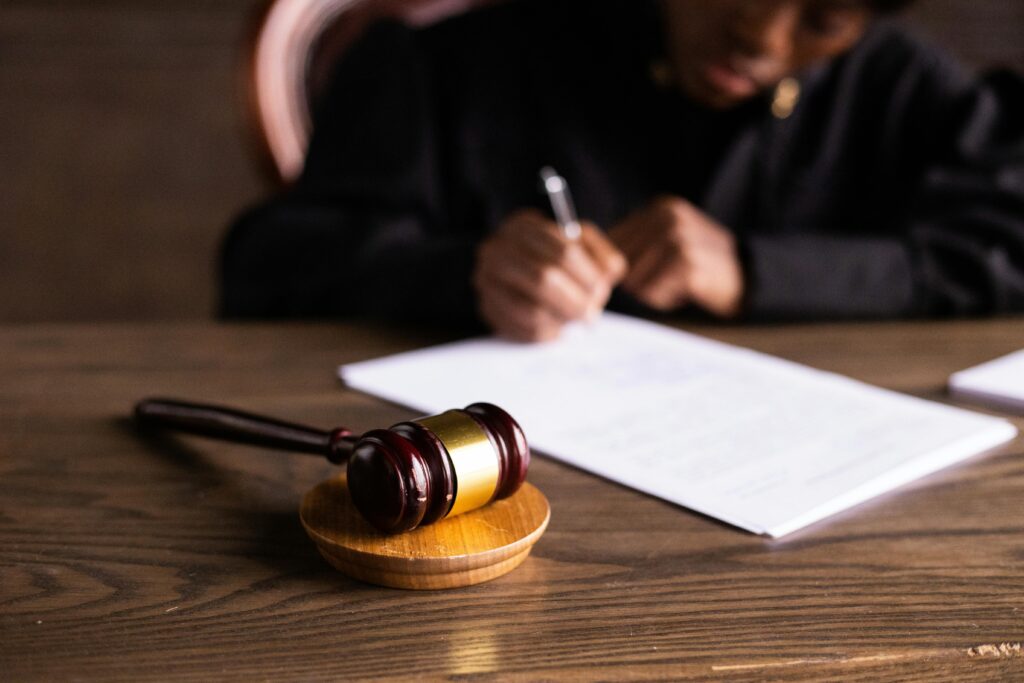Published on 4th February 2025
Authored By: Mallagari Parvathi
Mahatma Gandhi Law College
Introduction
Water is an essential for every living creature. As it is essential, it should not waste or polluted. Due to indiscriminate use of water for industrial purposes, it has been contaminating by industrial wastage, sludge, and pollution. If water not prevented, we and our future generations will suffer. The Stockholm Conference, 1972 paved the way to all the participant countries of that conference to prevent and control water pollution. Hence the central government took several measures and enacted the Water (Prevention and Control of Pollution) Act,1974.
The Boards which had constituted under the Act,1974 are:
Central Board
Section 3 clause (1)– Constitution of Central Board:
The Central Government shall, with effect from such date (being a date not later than six months of the commencement of this Act in the States of Assam, Bihar, Gujarat, Haryana, Himachal Pradesh, Jammu and Kashmir, Karnataka, Kerala, Madhya Pradesh, Rajasthan, Tripura and West Bengal and in the Union territories) as it may, by notification in the Official Gazette, appoint, constitute a Central Board to be called the Central Board for the Prevention and Control of Water Pollution to exercise the powers conferred on and perform the functions assigned to that Board under this Act.
Section 3 clause (2)– Members:
The Central Board shall consist of the following members, namely: –
(a) a full-time chairperson, being a person having special knowledge or practical experience in respect of matters relating to use and conservation of water resources or the prevention and control of water pollution or a person having knowledge and experience in administering institutions dealing with the matters previously mentioned, to be nominated by the Central Government.
(b) such number of five officials to be nominated by the Central Government to represent that Government.
(c) such number of persons, not exceeding five, to be nominated by the Central Government, from amongst the members of the State Boards, of whom not exceeding two shall be from those referred to in clause (c) of sub-section (2) of section 4.
(d) such number of three non-officials to be nominated by the Central Government, to represent the interests of agriculture, fishery or industry or trade or any other interest which, in the opinion of the Central Government, ought to be represented.
(e) two persons to represent the companies or corporations owned, controlled, or managed by the Central Government, to be nominated by that Government.
(f) a full-time member-secretary, having qualifications, knowledge, and experience of scientific, engineering or management aspects of pollution control, to be appointed by the Central Government.
Section 3 clause (3) – The Central Board shall be a body corporate with the name aforesaid having perpetual succession and a common seal with power, subject to the provisions of this Act, to acquire, hold and dispose of property and to contract, and may, by the aforesaid name, sue or be sued.
section 16– Functions of Central Board:
The Central Board has the following functions:
- It shall promote cleanliness of streams and wells in different areas of the States.
- It recommends the Central Government on any matter concerning the prevention and control of water pollution.
- It co-ordinate the activities of the State Boards and resolve disputes among them.
- It provides technical aid and guidance to the State Boards, to carry out and sponsor investigations and research relating to problems of water pollution and prevention, control, or abatement of water pollution.
- It plans and organises the training of persons engaged or to be engaged in programmes for the prevention, control, or abatement of water pollution on such terms and conditions as the Central Board may specify.
- It organises through mass media a comprehensive programme regarding the prevention and control of water pollution.
- It performs such of the functions of any State Board as may be specified in an order made under sub- section (2) of section 18.
- It collects, compiles, and publishes technical and statistical data relating to water pollution and the measures devised for its effective prevention and control and prepare manuals, codes or guides relating to treatment and disposal of sewage and trade effluents and send information connected therewith.
- It lays down, changes, or annuls, in consultation with the State Government concerned, the standards for a stream or well.
- It plans and causes to be executed a nation-wide programme for the prevention, control, or abatement of water pollution.
- It performs such other functions as may be prescribed.
- It may establish or recognise a laboratory or laboratories to enable the Board to perform its functions under this section efficiently including the analysis of samples of water from any stream or well or of samples of any sewage or trade effluent.
State Board:
Section 4 clause (1)– Constitution of State Board:
The State Government shall, with effect from such date as it may, by notification in the Official Gazette, appoint, constitute a State Board, under such name as may specified in the notification, to exercise the powers conferred on and perform the functions assigned to that Board under this Act.
Section 4 clause (2)– Members:
A State Board shall consist of the following members, namely: –
(a) a chairman, being a person having special knowledge or practical experience in respect of matters relating to environmental protection or a person having knowledge and experience in administering institutions dealing with the matters aforesaid, to be nominated by the State Government in such manner as may be prescribed by the central Government.
Provided that the chairman may be either whole-time or part-time as the State Government may may think fit.
(b) such number of five officials, to be nominated by the State Government to represent that Government.
(c) such number of five persons, to be nominated by the State Government from amongst the members of the local authorities functioning within the State.
(d) such number of three non-officials, to be nominated by the State Government to represent the interests of agriculture, fishery or industry or trade or any other interest which, in the opinion of the State Government, ought to be represented.
(e) two persons to represent the companies or corporations owned, controlled, or managed by the State Government, to be nominated by that Government.
(f) a full-time member-secretary, possessing qualifications, knowledge, and experience of scientific, engineering or management aspects of pollution control, to be appointed by the State Government.
Section 4 clause (3) – Every State Board shall be a body corporate with the name specified by the State Government in the notification under sub-section (1), having perpetual succession and a common seal with power, subject to the provisions of this Act, to acquire, hold and dispose of property and to contract, and may, by the said name, sue or be sued.
Section 4 clause (4)– Notwithstanding anything contained in this section, no State Board shall be constituted for a Union territory and in relation to a Union territory, the Central Board shall exercise the powers and perform the functions of a State Board for that Union territory.
Section 17– Functions of State Board:
The State Board has the following functions:
- It shall plan comprehensive programme for the prevention, control, or abatement of pollution of streams and wells in the State and to secure the execution thereof.
- It shall advise the State Government on any matter concerning the prevention, control, or abatement of water pollution.
- It shall collect and give information relating to water pollution and the prevention, control, or abatement thereof.
- It shall encourage, conduct, and take part in investigations and research relating to problems of water pollution and prevention, control, or abatement of water pollution.
- It shall collaborate with the Central Board in organising the training of persons engaged or to be engaged in programmes relating to prevention, control, or abatement of water pollution and to organise mass education programmes relating thereto.
- It shall inspect sewage or trade effluents, works and plants for the treatment of sewage and trade effluents and to review plans, specifications or other data relating to plants set up for the treatment of water, works for the purification thereof and the system for the disposal of sewage or trade effluents or in connection with the grant of any consent as required by this Act.
- It shall lay down, modify or annul effluent standards for the sewage and trade effluents and for the quality of receiving waters (not being water in an inter-State stream) resulting from the discharge of effluents and to classify waters of the State.
- It shall evolve economical and reliable methods of treatment of sewage and trade effluents, having regard to the peculiar conditions of soils, climate, and water resources of different regions and more especially the prevailing flow characteristics of water in streams and wells which make it impossible to reach even the minimum degree of dilution.
- It shall evolve methods of utilisation of sewage and suitable trade effluents in agriculture.
- It shall evolve efficient methods of disposal of sewage and trade effluents on land, as are necessary on account of the predominant conditions of scant stream flows that do not provide for major part of the year the minimum degree of dilution.
- It shall lay down standards of treatment of sewage and trade effluents to be discharge into any stream considering the minimum fair-weather dilution available in that stream and the tolerance limits of pollution permissible in the water of the stream, after the discharge of such effluents.
- It shall make, vary, or revoke any order –
(i) for the prevention, control, or abatement of discharges of waste into streams or wells;
(ii) requiring any person concerned to construct new systems for the disposal of sewage and trade effluents or to modify, alter or extend any such existing system or to adopt such remedial measures as are necessary to prevent, control or abate water pollution.
- It shall lay down effluent standards to be complied with by persons while causing discharge of sewage or sludge or both and to lay down, change or annul effluent standards for the sewage and trade effluents.
- It shall advise the State Government with respect to the location of any industry the carrying on of which is likely to pollute a stream or well.
- It shall perform such other functions as may be prescribed or as may, from time to time, be entrusted to it by the Central Board or the State Government.
- It may set up or recognise a laboratory or laboratories to enable the Board to perform its functions under this section efficiently, including the analysis of samples of water from any stream or well or of samples of any sewage or trade effluents.
Joint Board:
Section 13– Constitution of Joint Board:
- Where two or more Governments of contiguous States by an agreement can establish a Joint Board for the States concerned.
- Similarly, a Joint Board may be constituted by the Central Government in respect of one or more Union Territories and one or more Governments of States contiguous to such Union Territory or Union Territories.
- In such case the participating Union Territory or Union Territories and the State or States shall have to enter into an agreement.
- The agreement shall have to published in the official gazette of the participating States and/or Union Territory or Union Territories.
The functions and powers of Joint Board are similar to those of State Board.
Case Laws
- Vellore Citizens Welfare Forum v. Union of India (AIR 1996 SC 2115)– The petitioner- Vellore Citizens Welfare Forum, filed a Public Interest Litigation U/A 32 of Indian Constitution against the large-scale pollution caused to River Palar due to the discharge of untreated effluents by the tanneries and other industries in the State of Tamil Nadu. The water of River Palar is the main source of drinking and bathing water for the surrounding people. The Supreme Court delivered its judgment by making all efforts to maintain a harmony between environment and development. The court delivering its judgment in favour of petitioners directed all the Tanneries to deposit a sum of Rs. 10,000 as fine in the office of Collector as fine.
- M. C. Mehta v. Union of India (Ganga River Pollution Case) (AIR 1988 SC 1115) – On a PIL filed by the Mr. M. C. Mehta U/A 32 of Indian Constitution, it was observed by the Supreme Court that water of River Ganga was highly toxic near Kanpur city- as the Tanneries in the area were discharging their untreated effluents into the River.Also, nine nallahs were discharging sewage effluents and sludge into the river. Similarly, dead bodies and half-burnt bodies were also being thrown into the river. Therefore, the court held the Kanpur Mahanagarpalika liable and also passed several direction such as Increase of size of sewers; Construction of several numbers of latrines and urinals; Preventing the throwing the dead bodies and half-burnt bodies or ashes after Funeral ceremonies into the river; Installing treatment plants in tanneries and other factories, for the PCA (Prevention, Control and Abatement) of pollution of River Ganga.
Conclusion:
The water consists 71% of the geographical area of the globe. However, out of this huge quantity of water only 1% will used for consumption. Hence, the government should take more steps from preventing and controlling water pollution. The Water Act, 1974 is the absolute step taken by the government against water pollution. This Act,1974 imposes certain restrictions and punishments upon the industrialists, occupiers of the factories. The Water (Prevention and Control of Pollution) Amendment Bill, 2024 was introduced in Rajya Sabha on February 5, 2024, to amend Water (Prevention and Control of Pollution) Act, 1974. The government should take several measures to eradicate water pollution, so that people will live their life without any diseases and disabilities.
References:
- https://www.indiacode.nic.in/handle/123456789/1612?sam_handle=
- https://lawbhoomi.com/important-case-laws-of-environmental-law/




